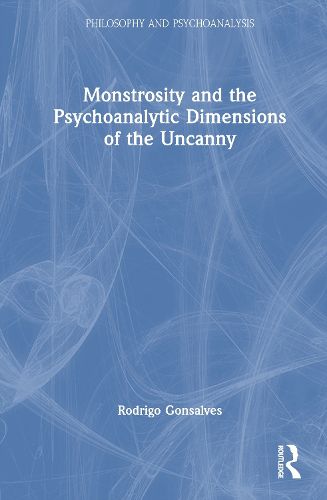Readings Newsletter
Become a Readings Member to make your shopping experience even easier.
Sign in or sign up for free!
You’re not far away from qualifying for FREE standard shipping within Australia
You’ve qualified for FREE standard shipping within Australia
The cart is loading…






This accessible and meticulously researched book is a philosophical study dedicated to the psychoanalytic dimension of the uncanny and the discussions on monstrosity as fundamental concepts to address contemporary experiences of anguish, desire, suffering and alienation.
Examining the uncanny in Freud and Lacan, the book explores its emergence through psychoanalysis and aesthetics, as well as its meta-psychological implications. Chapters explore the history and connection between the uncanny and monstrosity in both philosophy and psychoanalysis, following on from the construction of Freud's 'The Uncanny' in 1919, and focusing on these concepts through different perspectives, such as Marxism. Finally, the book argues towards the importance of a monstrous grammar (re)introduced to psychoanalysis, in order to sustain a specific clinical listening of our times.
Offering new insights and arguments on these fascinating concepts, this book will be of interest to philosophers, psychoanalysts and psychologists, as well as also appealing to professionals and students in the worlds of arts, film and history.
$9.00 standard shipping within Australia
FREE standard shipping within Australia for orders over $100.00
Express & International shipping calculated at checkout
This accessible and meticulously researched book is a philosophical study dedicated to the psychoanalytic dimension of the uncanny and the discussions on monstrosity as fundamental concepts to address contemporary experiences of anguish, desire, suffering and alienation.
Examining the uncanny in Freud and Lacan, the book explores its emergence through psychoanalysis and aesthetics, as well as its meta-psychological implications. Chapters explore the history and connection between the uncanny and monstrosity in both philosophy and psychoanalysis, following on from the construction of Freud's 'The Uncanny' in 1919, and focusing on these concepts through different perspectives, such as Marxism. Finally, the book argues towards the importance of a monstrous grammar (re)introduced to psychoanalysis, in order to sustain a specific clinical listening of our times.
Offering new insights and arguments on these fascinating concepts, this book will be of interest to philosophers, psychoanalysts and psychologists, as well as also appealing to professionals and students in the worlds of arts, film and history.